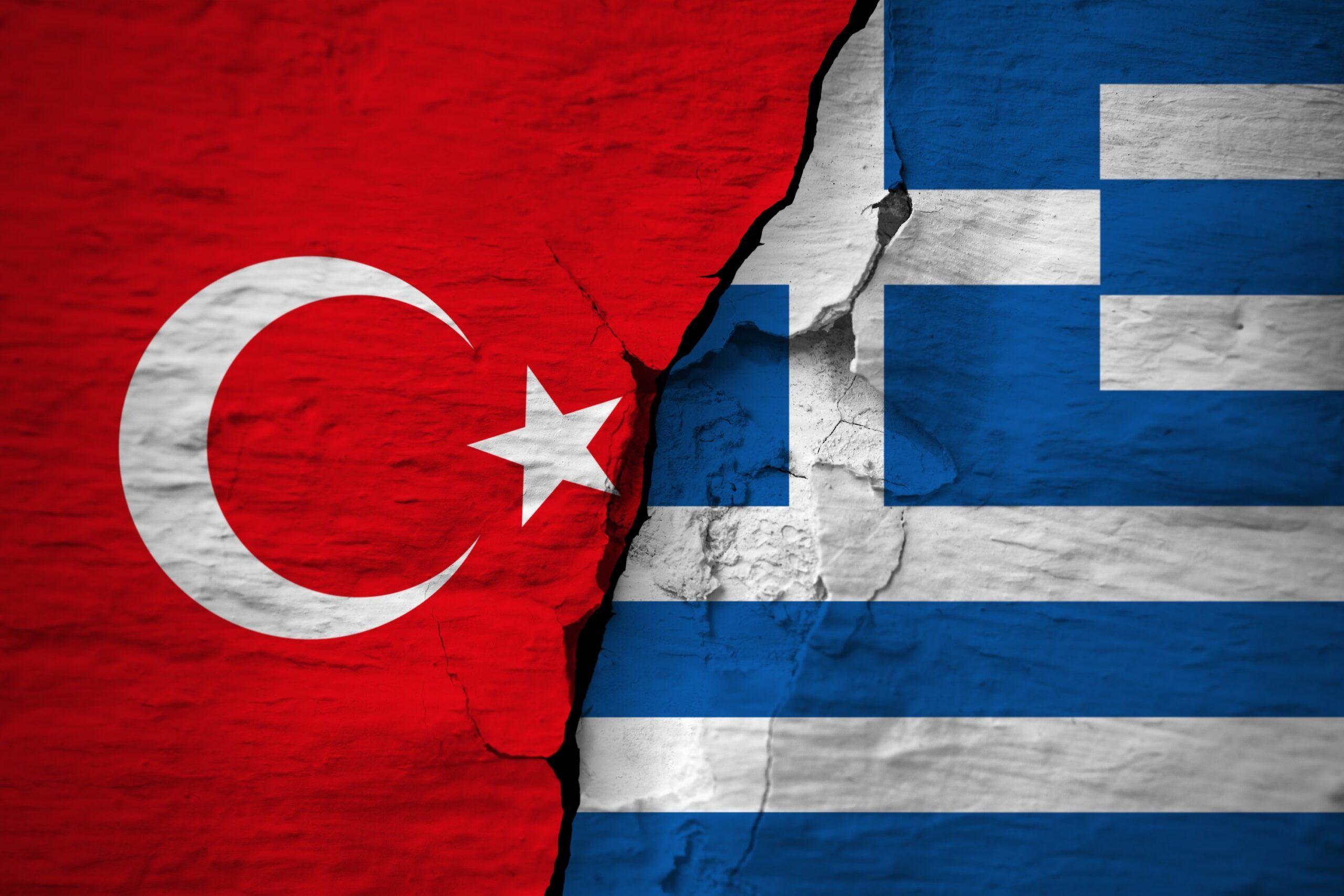BY ZEYNEP GURCANLI
The Aegean tension between Turkey and Greece, which has escalated recently, is wellknown. The “propaganda” tour by Greek Prime Minister Mitçotakis, which started in the US, continued with a meeting with German Chancellor Olaf Scholz in Brussels.
The US and Germany, which have tried to remain neutral on the Aegean issues and even mediated tensions between Ankara and Athens that came to the brink of hot conflict, have moved closer to the Greek position for the first time.
As a matter of fact, the Athenian government, taking advantage of a favorable international climate, started propaganda all over the world by preparing 16 maps describing Aegean problems from a Greek point of view, disregarding international law and relevant articles from the Treaty of Lausanne. According to the Greek newspaper Kathimerini, ambassadors around the world were instructed to use these maps to explain “Turkey’s aggressive and expansionist policies”.
It’s not over. Prime Minister Mitçotakis also visited the island of Kos, off of Bodrum, which is within the scope of disarmament outlined in the Treaty of Lausanne. He even went to Keçi Island, one of the disputed islands in the Aegean, and made a show of strength.
The attitude of the AK Party government in Ankara against such a campaign did not go beyond President Erdogan’s words, “Mitçotakis is over for me,” and weak statements made by the Foreign Ministry.
Either the economic crisis in Turkey has resulted in Ankara’s hands being tied over the course of the tourism season, or the AK Party government, which has been criticized in the West for vetoing membership by Sweden and Finland in NATO, is avoiding opening a “second front” in the Aegean. Otherwise, there is little explanation for these weak reactions, this silence.
MOVES IN CYPRUS
Mitçotakis, the target of President Erdogan’s statement, “The Greek Prime Minister is finished for me,” was not given much attention by the international community and Greek Cypriots were also mobilized.
Greek Cypriot leader Anastasiades wrote a 6-page letter and conveyed the Turkish Republic of Norther Cyprus (TRNC) through a special representative. The letter addressed to TRNC President Ersin Tatar was not on the agenda in Turkey, but the Greek press wrote about the letter and its possible effects for days.
The letter, which opposed Turkey’s stance regarding Cyprus, outlined proposals by Greece that have been, to date, rejected by Ankara:
Greece is against the “confederation” plan put forward by Turkey recently, there is a “federation” solution outlined in Anastasiyades’ letter.
In response to recent steps taken by the TRNC in coordination with Turkey to open Maraş for settlement, Anastasiyades’ letter demands the return of Maraş to the Greek side.
There is also a direct request from Greece to Turkey in the letter. They ask Turkey to open seas and airports to Greek-Cypriot-flagged ships and aircraft. If this is done, Turkey will de facto recognize the Greek part of Cyprus as a state.
The letter also includes a demand for Turkey to abandon its claims for an exclusive economic zone in the Eastern Mediterranean, and for the recognition of the exclusive economic zone drawn by the Greek Cypriot side and claimed by itself.
The timing of Anastasiades’ letter is also important; The letter is dated exactly one week after Greek Prime Minister Mitçotakis went to the United States, was hosted by Biden, and delivered a speech to the US Congress, to which American representatives gave a standing ovation.
It is clear that the Cypriot and Greek authorities acted in coordination.
It is obvious that Turkey will be pressed internationally not only by the Greece in the Aegean, but also by the Greek Cypriot issue.
CHILLY TIES BETWEEN ANKARA AND WASHINGTON CONTINUE
It is necessary to add to these the cold winds that continue to blow from Washington. The AK Party government proposed a “bilateral negotiation mechanism” to normalize relations with the Biden administration in Washington, and the US side declared it was open to this in a joint statement made during the visit by Deputy Foreign Minister Sherman to Ankara. As the next step in this bilateral mechanism, Foreign Minister Çavuşoğlu was planning to pay a visit to Washington.
However, at the last moment, the meeting with Çavuşoğlu in Washington was canceled due to a conflict in US Secretary of State Blinken’s schedule. Instead, it was suggested that the Blinken-Çavuşoğlu meeting be held in New York.
At first glance, there may be those who think, “What does it matter if the meeting is held in New York instead of Washington?” However, from a diplomatic point of view, this relocation shows that the Biden administration’s view of the AK Party government in Turkey has not changed.
A Secretary of State’s visit to Washington, that is, to the Capital, is not the same as a meeting in New York on the side of other meetings. It is obvious that Blinken did not want to pose with Çavuşoğlu in the American Capital before US congressional elections in November.
Of course, this cold attitude towards Ankara was underlined and noted by the Greek-Cypriot events.
While the AK Party government is fighting the West through Sweden and Finland in NATO, the Greek-Cypriot alliance is trying to put Ankara in a difficult situation by spreading and imposing their own plans. We have a more difficult period ahead of us in foreign policy than ever before.









